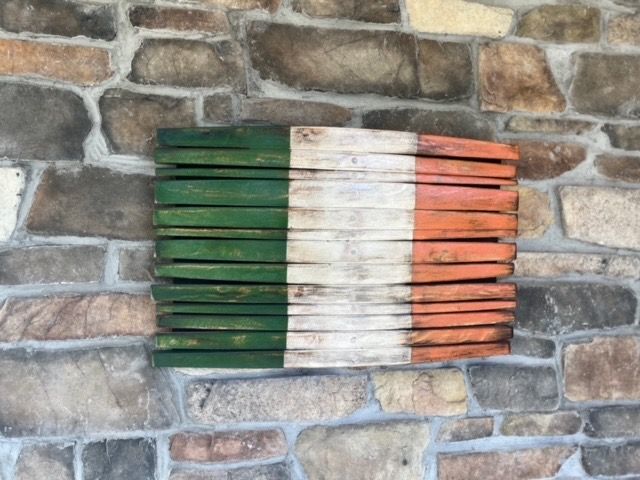Page Turner / Edited by Peter McDermott
Damian Shiels 8768 Civil CVR.indd

Damian Shiels, the keynote speaker at the 2014 Tennessee Civil War Sesquicentennial Event, will present “Patrick Cleburne at the Battle of Franklin” at the Factory in Franklin, on Friday, Nov. 14 at 10:45 a.m.
Robert E. Lee described him as “A meteor shining from a clouded sky” and 150 years after his death following the Battle of Franklin, Cork-born Major General Patrick Cleburne remains an intriguing and popular figure.
One of the reasons, said “The Irish in the American Civil War” author Damian Shiels, is that he recommended the freeing of the slaves and thus doesn’t seem “quite so invested in the institution of slavery as some other Confederates.”
He proposed the policy “because he felt it a military necessity to do so, not because he believed in emancipation per se,” he added.
“When he brought the proposal forward in January 1864 it was suppressed and the fact that he made it at all was only discovered by chance decades later,” said Shiels, who will give a lecture on Cleburne in Franklin, Tenn., on this Friday.
Shiels is a conflict archaeologist, who runs the www.irishamericancivilwar.com website, which contains 100s of stories relating to the Irish experience of that conflict.
His book on the subject, he said, “was initially published in Ireland in an attempt to raise awareness of the impact of this conflict on Irish emigrants. The vast majority of people in what is now the Republic of Ireland are unaware that for many Irish counties, it was this war that saw more men from their locality in uniform than any other in history.”
Damian Shiels
Date of birth: Oct. 1, 1979
Place of birth: London
Partner: Sara Nylund
Children: None
Residence: Midleton, Co. Cork
What is your writing routine? Are there ideal conditions?
My two main types of writing are for my website, where I try to create a few articles per month, and for traditional publication in books and journals. I work best having a major block of time to work in without distractions, preferably over a number of hours. I always aim to keep narrative central, so once relevant research is done I tend to write a piece in its entirety, then go back over it a number of times to polish and refine it.
What advice do you have for aspiring writers?
When I was first asked to write a paper I initially refused, thinking of a million reasons it might not go well. In the end I decided passing up the opportunity would be something I would long regret, and since then I have always sought to publish as much as possible. Everyone can write, and there is always someone who will want to read what you have to say. In the digital age, it is now much easier to ‘test the waters’ by putting a few pieces up online- there are few better ways to develop and refine your writing style than setting up your own blog.
Name three books that are memorable in terms of your reading pleasure.
In terms of Civil War history, recent works that have influenced me include David Blight’s “Race and Reunion: The Civil War in American Memory,” Drew Gilpin Faust’s “This Republic of Suffering: Death and the American Civil War” and Gary Gallagher’s “The Union War.”
What book are you currently reading?
I am currently reading Stephen V. Ash’s “A Massacre in Memphis: The Race Riot That Shook the Nation One Year After the Civil War” which is a must read for anyone interested in the history of the Irish in the South, particularly with respect to Irish interactions with African Americans in the Nineteenth century.
Is there a book you wish you had written?
Far too many. I would love to be able to write historical fiction- any of John Boyne’s works for example, or perhaps Pat Barker’s ”Regeneration” trilogy, which are superb.
If you could meet one author, living or dead, who would it be?
This would have to be one of the many Irishman who wrote accounts of their experiences of the American Civil War. I have plenty questions I would like to ask them.
What book changed your life?
The Ladybird “Adventures from History” series which explored great people and events from history really ignited my love for the past at a formative age. They still adorn my shelves in their distinctive blue livery.
What is your favorite spot in Ireland?
Doe Castle in Creeslough, Co. Donegal. My mother’s family are from nearby and it was the site that led me to pursing archaeology as a career. Figures such as Red Hugh O’Donnell stayed here and its dramatic setting make it one of the most picturesque castles in Ireland.
You're Irish if...
For the purposes of my work on the American Civil War, I classify people as Irish if they were either born in Ireland or were part of (or sought to be recognised as part of) the Irish-American community. This is something I would hold to today, there should be room for everyone who wishes to identify as Irish (or part Irish) among the Irish diaspora.
For more on the program in Franklin, go to www.tncivilwar150.com, or email tn.civilwar150@tn.gov, or call (615) 532-7520.










